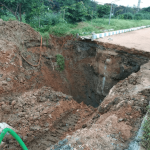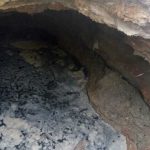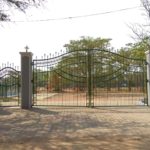By Anuksha Dey
Untreated water has been seeping into Agara lake from Bangalore Water Supply and Sewerage Board’s (BWSSB) Sewage Treatment Plant (STP) in Sector 4, HSR Layout. The lake supports rich biodiversity of fish, birds, and reptiles. Oil and other waste materials in the sewage have left a stink in the water body. It could also take a toll on aquatic life if the sewage is allowed to seep into the main waterbody of Agara lake.
Pollutants entering the lake
Agara Lake, which was originally a rainfed water body, has been maintained using grey water from a government-run STP since 2020. For the last few days, the water from the STP had untreated sewage, oil, and bits of garbage. “The STP operates at night and there is no one to monitor the quality of the water flowing into the lake,” says lake activist Kavitha Reddy. “The water should be 4 feet below the ground level, but they have dumped so much waste water that it’s almost overflowing.”
Where is the oil coming from?
The oil in the water coming from the STP is a major cause for worry. Oil, when ingested or inhaled by aquatic animals, can prove detrimental. The oil can also make it difficult for fish and certain species of birds to maintain their body temperature, and could lead to their deaths.
Activists believe the oil is being directed into the lake from the drains in front of Freedom International School in HSR Layout through the STP. The waste oil has been re-sent into the drainage system for over a year, and BBMP has taken no action despite complaints from the residents.
Is the STP beneficial?
The Save Agara Lake Committee, which was largely responsible for regenerating the lake area, has been opposing the establishment of a STP in the area since 2014. However, the STP was set up in the land owned by the lake in 2019 after a few residents went to court. The Lake Development Authority promised to provide clean water to replenish the reservoir in return for the land. Reddy says that the quality of water provided by the STP has never been good. “They are supposed to conduct regular surveys to test the quality of water. Just last week, a law was passed saying STPs had to invest Rs 4 lakhs on sensors. Why should government-run STPs be exempt?” she asks.
The water from the STP flows into a rectangular tank at Agara Lake, and then redirected to a small wetland area before joining the water body. However, a majority of the wetland area is unutilized and not maintained since the STP was set up last year. The wetland is divided into four zones. Before the STP was set up, the rainwater used to flow from one zone to another, and getting filtered at every stage. The STP only makes use of the last zone which is insufficient for filtering the amount of waste that can be seen in the water coming from the STP, and the rest of the wetland is overgrown and unmaintained.
Response from the authority
Mohankrishna BT, the chief engineer of BBMP’s lakes division has assured the residents that he will visit the location and address the problem soon. “Such an issue has never happened before,” he told Residents Watch. Reddy has a solution to the problem: “BBMP needs to pump out the sewage water and get it treated properly before it gets put back into the lake.”
Not just a local problem
The STP is only functioning at a fraction of its full capacity at the moment. Once the STP is fully running, the water will flow to Anekal and Kanakapura. If the BWSSB does not look into the quality of water it is providing, the harm will not be restricted to one lake in urban Bengaluru.
The issue of untreated water entering the lake too is quite common in the city. Lakes, such as Kudlu Dodda Kere, and even Kaikondrahalli, has suffered similar problems. According to a study done by India Water Portal, 90% of Bengaluru’s lakes are polluted.




